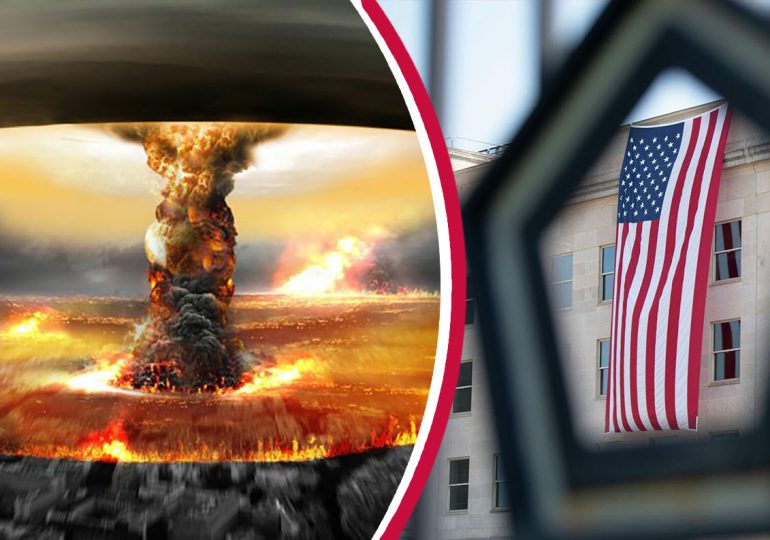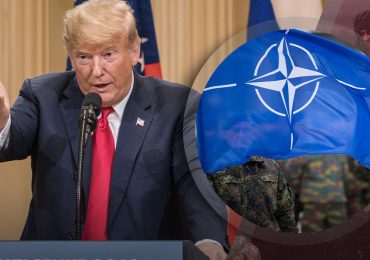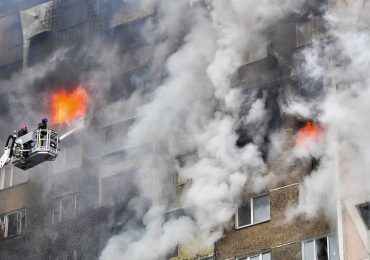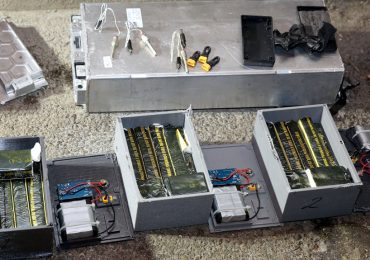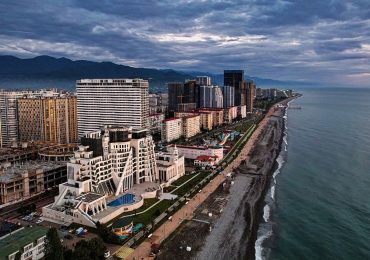РФ хочет взорвать ядерную бомбу в космосе. 9 февраля 2024 года РФ запустила в космос ракету-носитель “Soyuz-2-1V” with a secret payload for the Russian Ministry of Defense.
Russia had the idea to use nuclear weapons in space. This strategy is not intended to point nuclear warheads at Earth, but is most likely used to potentially destroy communications satellites, both military and civilian.
Read also: Trump encourages Russia to attack NATO countries
Putin realizes that in a war under modern technological conditions he will not be able to win. He has no technological advantage and will not be able to upgrade his army with old tanks. Therefore, detonating a nuclear bomb in space could provide an advantage on the battlefield in an increasingly likely World War III.
Putin will reverse progress around the world
Putin decided that he could reverse progress throughout the world, and thus win the conflict with NATO. It could attempt to disrupt drone movements across the seas, disrupt commercial air travel, and throw ships off course as global maritime navigation relies on GPS.
Weapon systems such as М982 Excalibur or missiles for HIMARS rocket launchers cannot function without GPS. The same goes for Storm Shadow/SCALP, TAURUS.
Consequences if a nuclear bomb is detonated in space orbiting the Earth
Consequences: The use of nuclear weapons in Earth's orbit could have catastrophic results for space infrastructure and all of humanity.
Read also: NATO is preparing for Russian missile attacks in Europe
Here is a list of the consequences of a nuclear bomb exploding in space in Earth's orbit:
- Destruction of satellites: Nuclear explosions could destroy existing artificial satellites such as Starlink, GPS, which play a critical role in modern communications, navigation, meteorology, scientific research and NATO defense.
- Space debris generation: Explosions of nuclear weapons generate huge amounts of space debris, as fragments are broken into many small pieces. This debris poses a serious threat to existing and future space missions and satellites.
- Radiation consequences: If a nuclear bomb were detonated in space, it could release radiation, posing a danger to spacecraft and astronauts. The radiation can also affect space stations and other objects in space.
- Damage to space infrastructure: Nuclear explosions can damage spacecraft, communications and navigation satellites, disrupting telecommunications, navigation and other critical systems we rely on in everyday life.
Overall, if a nuclear bomb were detonated in space, it could have far-reaching and critically destructive consequences for both space infrastructure and the modern economy, supply chain, smart technology, and life on Earth in general.
Threat to US national security from the Russian Federation
Top White House national security officials, along with influential congressional lawmakers, have attempted to calm public concerns following a warning from the House Intelligence Committee chairman about the potential threat to national security posed by the growing “foreign military potential”.
Read also: Russia blocks GPS in Europe, preparing for war with NATO
According to information obtained from ABC News sources, this topic is alarming and is considered extremely sensitive for the United States. Several members of Congress, without commenting directly on the issue, noted the seriousness of the problem, while being careful not to cause panic among the public.
Russia has an idea to use nuclear weapons in space – US intelligence
Reacting to emerging issues, Speaker of the US House of Representatives, Mike Johnson, told reporters: “We intend to work together to resolve this issue, as we resolve other extremely important issues left in the shadows”.

Member of the US House Intelligence Committee Jim Himes called a threat to US national security “serious”
Connecticut Democrat and House Intelligence Committee ranking member Jim Himes made a similar point in a statement. He called the warning “serious”, however, stressed that there is no reason to panic.
“Discussion about the possibility of disclosing additional information in this matter may take place, but is not in the public domain”, – Himes noted.

